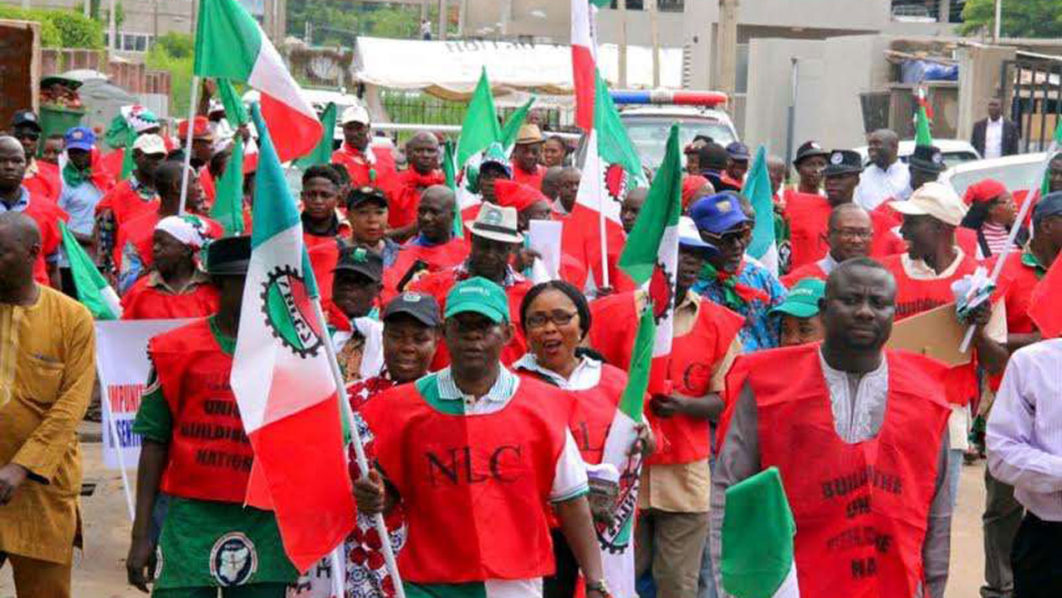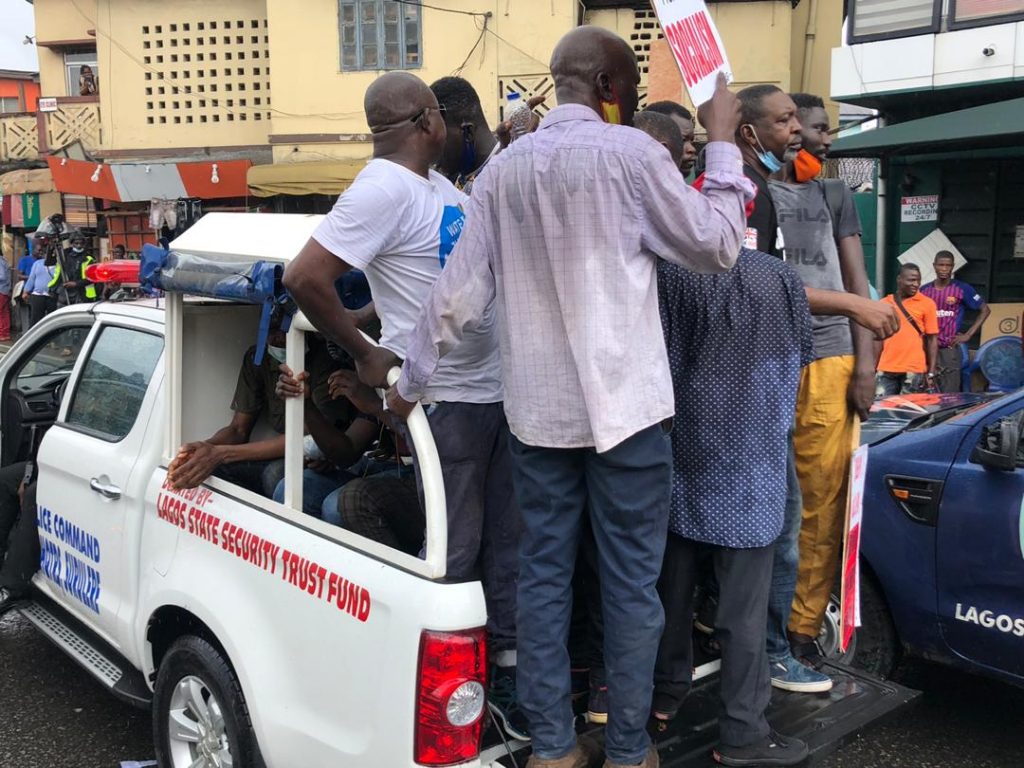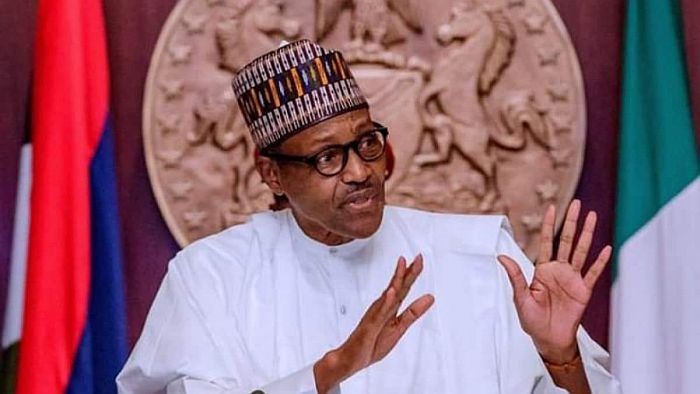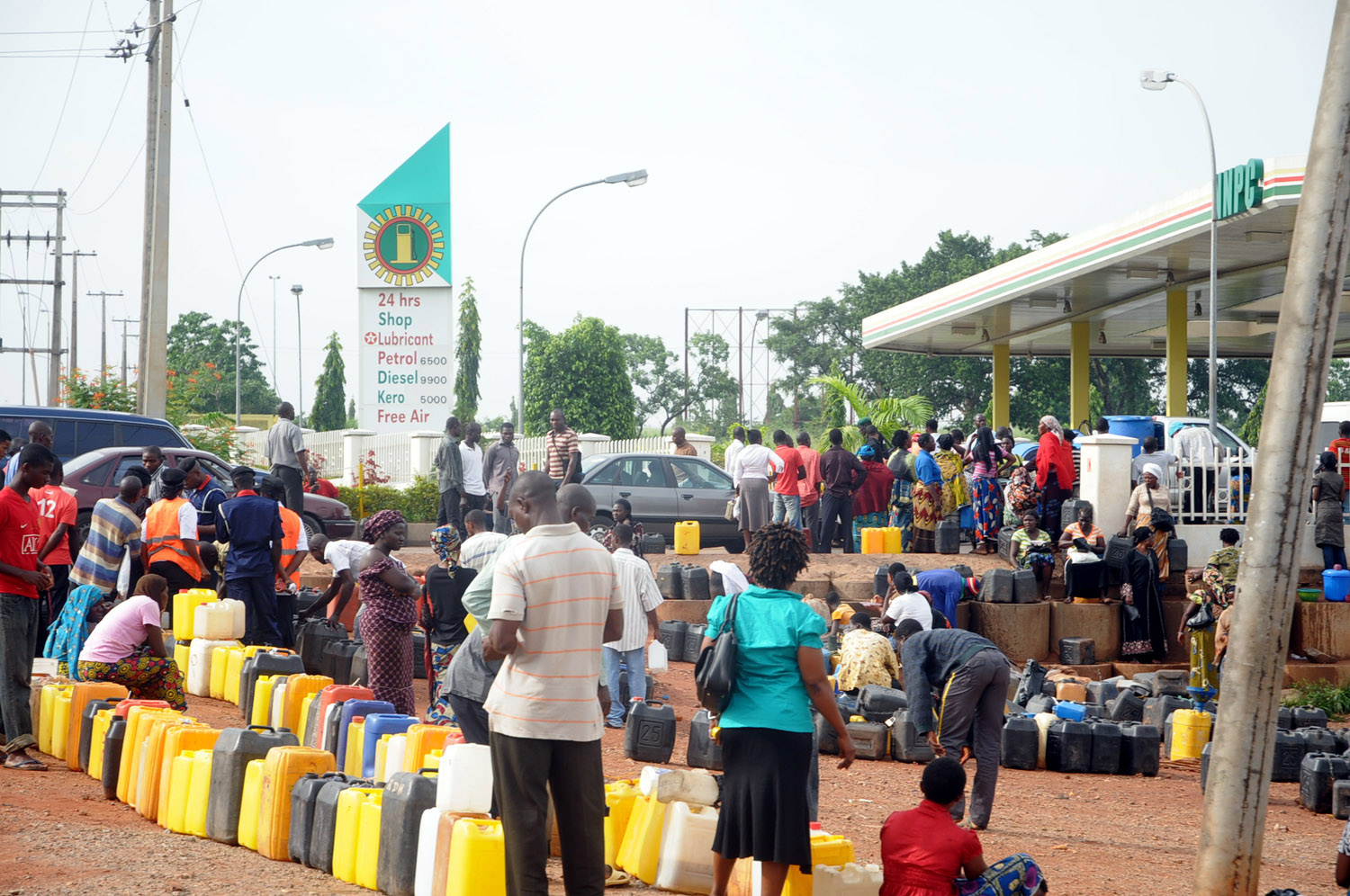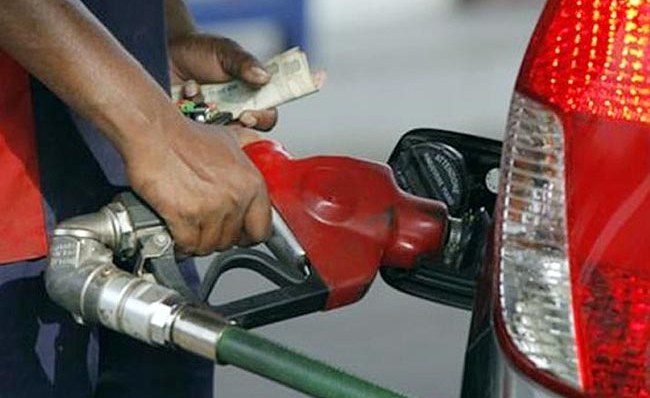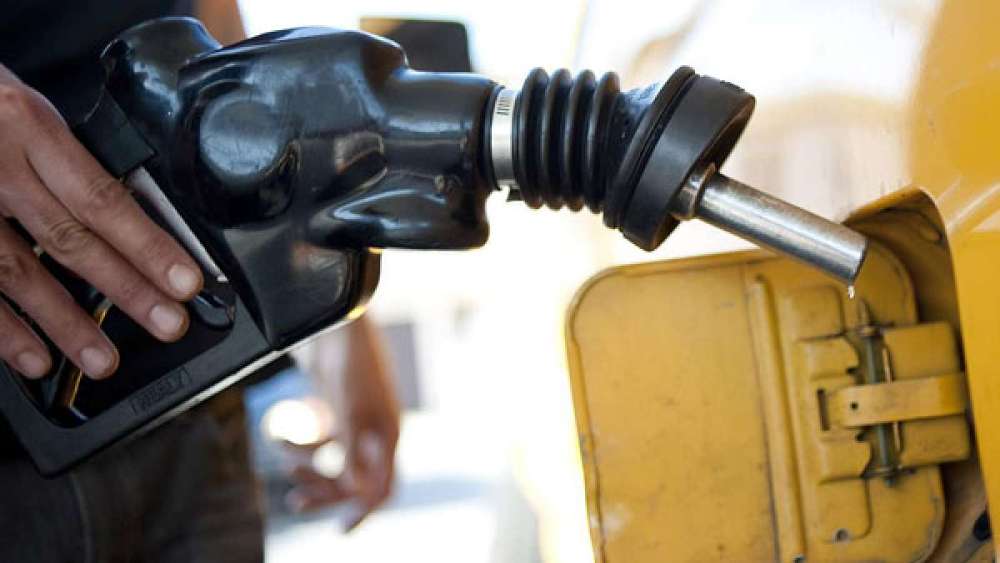President Muhammadu Buhari Monday in Abuja gave reasons his government cannot reverse the increase in the prices of petrol and electricity in the country, saying it was done in the long term economic interests of Nigerians.
Besides, he said the 2020 budget has no provision for petrol subsidy.
Buhari spoke at the First Year Ministerial Performance Review Retreat at the State House Conference Centre.
His speech was delivered by Vice President Yemi Osinbajo.
According to Buhari, the target of providing 11,000 megawatts by 2023 was realistic and realizable, and would provide a lifeline for many businesses and improve the living conditions of many Nigerians.
He assured Nigerians of the willingness and determination of the Federal Government to provide stable electricity to every home and industry, while considering the economic challenges before individuals, families and businesses, explaining that “implementation of a Willing buyer, Willing Seller Policy for the power sector has opened opportunities for increased delivery of electricity.’’
President Buhari noted that increase in price of electricity and deregulation of the petroleum sector were crucial decisions that were taken at the beginning of the year, preceding the COVID-19 pandemic.
He said continuous delay in implementation of the policy of the “Willing Buyer, Willing Seller’’ and deregulation of the petroleum would be detrimental to the economy, placing the burden of regular light cuts and fuel queues on Nigerians.
“Implementation of a Willing Buyer, Willing Seller Policy for the power sector, has opened up opportunities for increased delivery of electricity to homes and industries. We are also executing some critical projects through the Transmission, Rehabilitation and Expansion Programme, which will result in the transmission and distribution of a total of 11,000 Megawatts by 2023.
“On transportation, we are growing the stock and quality of our road, rail, air and water transport infrastructure. The Presidential Infrastructure Development Fund projects are also progressing very well. These include the 11.9 km Second Niger Bridge, 120 km Lagos-Ibadan Expressway, and 375 km Abuja – Kaduna – Zaria – Kano Expressway. At the same time, we are actively extending and upgrading our railway networks, as well as our airports which are being raised to international standard with the provision of necessary equipment, to guarantee world class safety standard.’’
The President said the COVID-19 pandemic led to severe downturn in the funds available to finance the nation’s budget.
“One of the steps we took at the beginning of the crisis in March when oil prices collapsed at the height of the global lockdown, was the deregulation of the price of Premium Motor Spirit (PMS) such that the benefit of lower prices at that time was passed to consumers.
“This was welcome by all and sundry. The effect of deregulation though is that PMS prices will change with changes in global oil prices. This means quite regrettably that as oil prices recover we would see some increases in PMS prices. This is what has happened now. When global prices rose, it meant that the price of petrol locally would go up.
“There are several negative consequences if Government should even attempt to go back to the business of fixing or subsidizing PMS prices. First of all, it would mean a return to the costly subsidy regime. Today we have 60% less revenues, we just cannot afford the cost. The second danger is the potential return of fuel queues – which has, thankfully, become a thing of the past under this administration.
“Nigerians no longer have to endure long queues just to buy petrol, often at highly inflated prices. Also, as I hinted earlier, there is no provision for fuel subsidy in the revised 2020 budget, simply because we are not able to afford it, if reasonable provisions must be made for health, education and other social services. We now simply have no choice.
“Nevertheless, I want to assure our compatriots that Government is extremely mindful of the pains that higher prices mean at this time, and we do not take the sacrifices that all Nigerians have to make for granted. We will continue to seek ways and means of cushioning pains especially for the most vulnerable in our midst. We will also remain alert to our responsibilities to ensure that marketers do not exploit citizens by raising pump price arbitrarily.
“This is the role that government must now play through the Petroleum Products Pricing Regulatory Agency (PPPRA). This explains why the PPPRA made the announcement a few days ago setting the range of price that must not be exceeded by marketers. The advantage we now have is that anyone can bring in petroleum products and compete with marketers, that way the price of petrol will be keep coming down.’’
On electricity, the President added that the recent service based tariff adjustment by the Discos had also been a source of concern for the government.
“Let me say frankly that like many Nigerians I have been very unhappy about the quality of service given by the Discos, but there are many constraints including poor transmission capacity and distribution capacity. I have already signed off on the first phase of the Siemens project to address many of these issues.
“Because of the problems with the privatization exercise, the government has had to keep supporting the largely privatized electricity industry. So far to keep the industry going we have spent almost 1.7 trillion, especially by way of supplementing tariffs shortfalls. We do not have the resources at this point to continue in this way and it will be grossly irresponsible to borrow to subsidize a generation and distribution which are both privatized.
“But we also have a duty to ensure that the large majority of those who cannot afford to pay cost-reflective tariffs are protected from increases. NERC, the industry regulator, therefore approved that tariff adjustments had to be made but only on the basis of guaranteed improvement in service. Under this new arrangement, only customers who are guaranteed a minimum of 12 hours of power and above can have their tariffs adjusted. Those who get less than 12 hours supply, or the Band D and E Customers MUST be maintained on lifeline tariffs, meaning that they will experience no increase.
“Government has also taken notice of the complaints about arbitrary estimated billing. Accordingly, a mass metering program is being undertaken to provide meters for over 5 million Nigerians, largely driven by preferred procurement from local manufacturers – creating thousands of jobs in the process. NERC has also committed to strictly enforcing the capping regulation which will ensure that unmetered customers are not charged beyond the metered customers in their neighborhood.’’
The President noted that the timing of implementation of both tariffs was a coincidence.
“There has been some concern expressed about the timing of these two necessary adjustments. It is important to stress that it is a mere coincidence in the sense that the deregulation of PMS prices happened quite some time ago, it was announced on 18 March 2020 and the price moderation that took place at the beginning of this month was just part of the on-going monthly adjustments to global crude oil prices.
“Similarly, the review of service-based electricity tariffs was scheduled to start at the beginning of July but was put on hold to enable further studies and proper arrangements to be made. This government is not insensitive to the current economic difficulties our people are going through and the very tough economic situation we face as a nation, and we certainly will not inflict hardship on our people.
“But we are convinced that if we stay focused on our plans, brighter, more prosperous days will come soon. Ministers and senior officials must accordingly ensure the vigorous and prompt implementation of the ESP programmes, which will give succour to Nigerians.
President Buhari said many Nigerians were yet to be connected to electricity, assuring that the Economic Sustainability Plan will provide Solar home systems to five million Nigerian households in the next 12 months.
“We have already begun the process of providing financing support through the CBN for manufacturers and retailers of Off Grid Solar Home Systems and Mini-Grids who are to provide the systems. The Five million systems under the ESP’s Solar Power Strategy will produce 250,000 jobs and impact up to 25 million beneficiaries through the installation. This means that more Nigerians will have access to electricity via a reliable and sustainable solar system.
“The support to Solar Home System manufacturers and the bulk procurement of local meters will create over 300,000 local jobs while ensuring that we set Nigeria on a path to full electrification. The tariff review is not about the increase, which will only affect the top electricity consumers, but establishing a system which will definitely lead to improved service for all at a fair and reasonable price.’’
President Buhari said the economy recovered from a recession and witnessed eleven quarters of consecutive GDP growth before COVID-19 pandemic, admonishing ministers and senior government officials to stay focused on delivering results that will improve the welfare of Nigerians.
The President said the government had continued to support the Agricultural sector, the key to diversification of the economy, through schemes such as the CBN Anchor Borrowers Programme and the Presidential Fertilizer Initiative programme.
On security, President Buhari said:“Nigeria’s Law Enforcement Agencies have significantly scaled up their footprint across the country. As part of the efforts towards strengthening our internal security architecture, the Ministry of Police Affairs was created.
“Amongst others, we have increased investments in arms, weapons and other necessary equipment, expanded the National Command and Control Centre to 19 States of the Federation, and established a Nigerian Police Trust Fund, which will significantly improve funding for the Nigeria Police Force. We have also approved the sum of N13.3 billion for the take-off of the Community Policing initiative across the country, as part of measures adopted to consolidate efforts.’’
The speech was read on behalf of the President by Vice President Yemi Osinbajo, as President Buhari was away in Republic of Niger at the 57th Ordinary Session of the ECOWAS Authority of Heads of State and Government.
